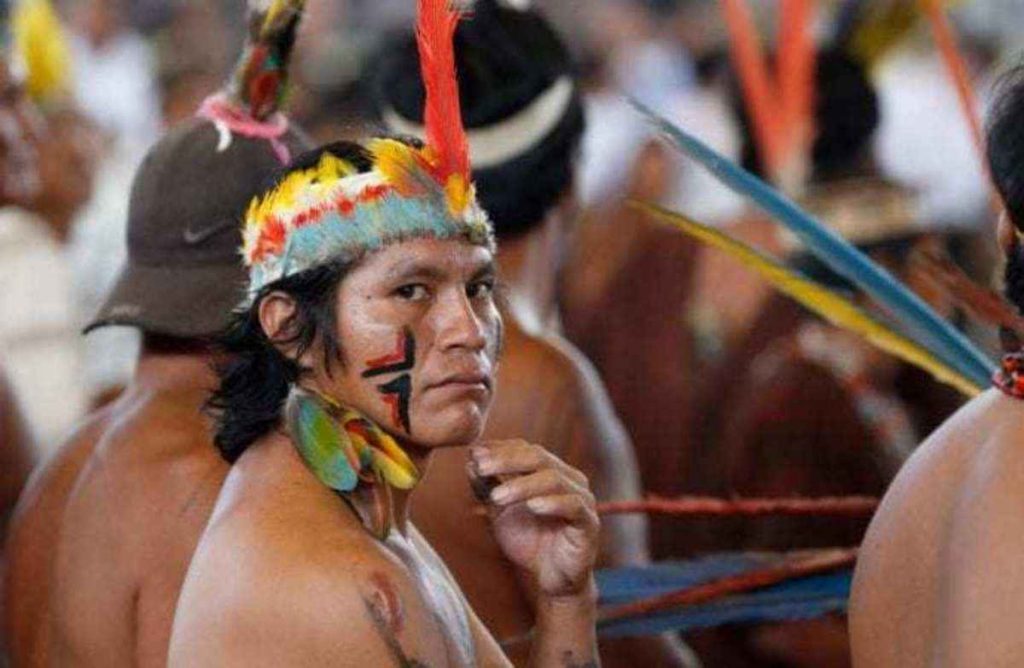In his six years in office, Pope Francis has been no stranger to controversy or resistance both inside the Vatican and beyond its walls, yet judging by the all-star lineup of opponents to his coming Synod of Bishops on the Amazon, the gathering is shaping up to be one of his most controversial initiatives since the 2014-2015 Synod of Bishops on the Family.
Titled “New Paths for the Church and for an Integral Ecology,” the Oct. 6-27 synod will draw some 300 Catholic leaders from the Pan-Amazonian region to discuss issues including the rights of indigenous populations, land rights, migration, corruption, the Church’s missionary efforts in the area, local liturgy and sustainable development.
Francis’s allies have praised the initiative as a heroic effort to give voice to marginalized indigenous communities in the region, and to shed light on environmental abuse and protections in a region housing the largest collection of biodiversity on the planet.
Peruvian Cardinal Pedro Barreto Jimeno of Huancayo, Peru, recently named by the pope as a delegate president for the Amazon synod, said in a July 18 article printed in the Jesuit-run journal La Civilta Cattolica, that the synod is an example of the social doctrine of the Catholic Church in action.
According to this doctrine, he said, “the mission of every Christian includes a prophetic commitment to justice, peace, the dignity of every human being without distinction, and to the integrity of creation in response to a predominant model of society that leads to exclusion and inequality and causes what Pope Francis has called a real ‘culture of waste’ and a ‘globalization of indifference.’”
However, this sentiment is not shared by everyone, as is evidenced by the fact that at least four different counter events have been organized by key Francis opponents.
On Sept. 17 two of Francis’s most vocal critics – Auxiliary Bishop Athanasius Schneider of Astana, Kazakhstan and American Cardinal Raymond Burke – launched a campaign of prayer and fasting in a bid to ensure that “error and heresy don’t pervert the imminent Synod of Bishops for the Amazon Region.”
The initiative is slated to last 40 days, until the close of the synod on Oct. 27.
(As a side note, also on Sept. 17 a key Francis ally and advisor, Italian Jesuit Father Antonio Spadaro, released a book in favor of the synod titled, Why a Synod for the Amazon? New Paths for the Church and for an Integral Ecology. The book was presented to the press at the headquarters of the Vatican’s communications department).
On Oct. 4, two days before the synod opens, a conservative group called “Voice of the Family” will host a roundtable discussion in Rome titled, “Our Church – Reformed or Deformed?” The roster of speakers and participants includes major English-speaking Francis critics John Henry Westen of LifeSite News and Michael Vorris of Church Militant.
A day later, on Oct. 5, a separate symposium is being organized by conservative and traditionalist Catholics called, “The Truth about the Amazon,” indicating that in their view, truth won’t come up in the synod hall.
That same day Catholics opposed to the synod are schedule to hold a large public “prayer for the Church” near Castel Sant’Angelo, just a stone’s throw from the Vatican walls.
Yet despite the momentum behind resistance to the Amazon synod, this is not the first time Francis’s opponents have held counter-events to his initiatives.
During the August 2018 World Meeting of Families in Dublin, for example, Ireland’s Lumen Fidei Institute organized a rival event titled the “Conference of Catholic Families,” which featured several critics of Amoris Laetitia who accused the current papacy of pushing a pro-LGBT agenda in Catholicism.
The main gripe opponents have with this year’s synod discussion is over an agenda they believe is more political than pastoral, with the risk of turning the Church into an NGO working harder to save trees than souls, and discussion on the possible ordination to the priesthood of viri probati, or tested married men, as a possible solution to the priest shortage in remote areas of the Amazon, some of which see a priest as little as four times a year.
In a June 27 article printed on the Settimo Cielo blog of Italian journalist Sandro Magister, German Cardinal Walter Brandmüller – one of four cardinals to publicly challenge the pope’s cautious opening of the door for divorced and remarried Catholics without an annulment and who is widely seen as a top opponent of Francis – issued a searing critique of the synod, calling it “heretical.”
Brandmüller, 90, said the synod constituted “a grave breach with the depositum fidei, which in its consequence means the self-destruction of the Church or the change of the Corpus Christi mysticum into a secular NGO with an ecological-social-psychological mandate.”
“What do ecology, economy, and politics have to do with the mandate and mission of the Church?” he said.
Judging by the number of counter-events to the Amazon synod, there are many Princes of the Church who have this question.
However, as fires in Brazil continue to burn up swaths of the Amazon forest and indigenous communities launch increased protests against Brazilian President Jair Bolsonaro over policies they say infringe on their rights, Francis supporters argue that the synod is more urgent than ever.
Whether the Amazon synod ends up creating the same hype that came out his 2014-2015 Synods of Bishops on the Family is yet to be seen, however, judging by the furor already present in the lead up to this year’s discussion, one might do well to prepare more for tidal waves than calm waters.

